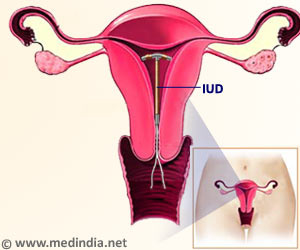Engaging in 15 minutes of social activity after undergoing a blood sample reduces stress hormone levels in women who are not using birth control pills.

Adrenocorticotropic hormone secretion in response to anticipatory stress and venepuncture: The role of menstrual phase and oral contraceptive use
Go to source). Researchers from Aarhus University and the United States have studied the stress response of 131 young women when having a blood sample //taken. Some of the women were on birth-control pills, while others were not. The researchers specifically measured the levels of the stress hormone ACTH in the women’s blood.
Disrupting Stress Regulation: The Impact of Birth-Control Pills on the Body
To avoid causing any additional stress to the test subjects, a small intravenous catheter was inserted in connection with the first blood sample. The researchers could then draw blood after the social activity without having to prick the women with a needle again.‘Women who take birth control pills do not observe a decrease in their levels of the stress hormone ACTH. #birthcontrolpills #contraception #womenstress #stresshormone’





The test subjects had an average age of 20.5 years. After having a blood sample taken, they could then participate in one of six different group activities such as playing board games, getting to know each other in a group session, singing songs together or attending a church service. "Being with other people is one of the most effective ways of reducing stress. Our results are really important because they indicate that people who use birth-control pills do not experience the same reduced stress hormone levels in connection with social activity as people who do not use the pill," says Michael Winterdahl. He is a visiting scholar at the Translational Neuropsychiatry Unit at the Department of Clinical Medicine and is the last author of the article.
The study differs from previous studies that have primarily focused on the stress hormone cortisol in extreme circumstances. In this study, the researchers measured the stress hormone ACTH, which changes significantly faster than cortisol. This makes it possible to observe and analyse rapid changes in a person’s stress response.
It has long been known that birth-control pills affect the stress response in women. However, looking at the stress hormone ACTH in connection with a social activity is a new approach.
"By studying ACTH levels, we take another step towards understanding how the brain regulates stress as ACTH acts as a neurotransmitter from the brain to the adrenal cortex, which produces cortisol. When we analyse ACTH levels, we can gain insight into the quick-response mechanism that controls the body's reaction to stress,” says Michael Winterdahl.
Advertisement
The researchers still need a final explanation for why birth-control pill users do not experience the same reduction of stress hormone levels in connection with social activities as people who are not on the pill.
Progesterone is broken down into the hormone allopregnanolone, which is involved in a wide range of calming effects and can have an influence on the stress response.
The study involved women who used birth-control pills and women who didn’t. The women were at different phases of their menstrual cycle.
The study revealed that the stress response in women who do not take birth-control pills depends on where they are in their monthly cycle. The stress-reducing group activities had no effect on the ACTH levels of the women who were in the proliferative phase of their cycle – just after their period has ended and the body begins producing hormones to get ovulation started.
"Progestrone levels are very low during the proliferative phase of a natural cycle. This leads to a minimal conversion of progestrone into the hormone allopregnanolone. Since allopregnanolone is important for activating the receptors that regulate the stress response, we don’t see a reduction in ACTH levels in women with a natural cycle who have just had their period," says Michael Winterdahl.
He points out that women are also generally more physically active during the proliferative phase, and that could be seen as an adaption in which the stress response and behaviour change in step with the cycle. In women who use birth-control pills, the stress response is ‘disconnected’, meaning it can not be adapted to a given situation.
Research still cannot explain exactly how this affects women. Additional research is therefore necessary to clarify the complex mechanisms involved in the correlation between hormone levels and the stress response.
"It’s also relevant to point out that birth-control pills aren’t just contraceptives. There are different generations of the pill, each with its own chemical structure due to the hormones used, which means the pills have different side-effect profiles. It’s therefore crucial that our experiments are reproduced with a larger and more diverse group of test subjects,” says Michael Winterdahl.
Reference:
- Adrenocorticotropic hormone secretion in response to anticipatory stress and venepuncture: The role of menstrual phase and oral contraceptive use - (https://www.sciencedirect.com/science/article/pii/S0166432823002681)















